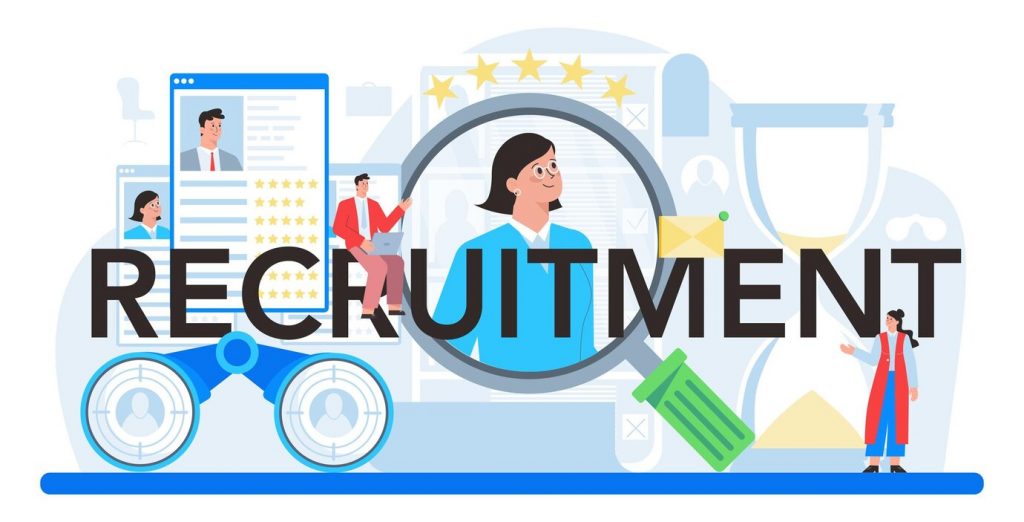Introduction
The modern hiring process has been revolutionized by remote work, global talent pools, and digital interviews. However, with these innovations come new challenges—one of the most pressing being proxy interview fraud. In an era where virtual hiring is the norm, verifying a candidate’s identity and capabilities is more difficult than ever. This blog post explores what proxy interviews are, why they pose a serious risk, and how organizations can detect and prevent such fraudulent practices. We’ll also show how platforms like JobTwine are at the forefront of solving this problem.
Understanding Proxy Interview Fraud
Proxy interview fraud occurs when a person other than the actual candidate appears for the job interview, often with the intent of securing a job offer fraudulently. In many cases, the impersonator is more qualified or better prepared, creating a false representation of the candidate’s abilities.
Why It Matters
- Reduced productivity: The hired individual may not have the skills represented in the interview.
- Security risks: In sensitive industries, fake hires can lead to data breaches and compliance violations.
- Financial loss: According to SHRM, the average cost of a bad hire can range from $17,000 to $240,000, depending on the role.
- Erosion of team trust: Teams lose confidence in hiring systems that let imposters slip through.
Real-World Examples
- In 2022, a Fortune 500 company discovered that a newly hired developer was using a third-party to attend all video calls.
- A major healthcare provider flagged over 30% of their remote interview candidates for suspicious behaviors using AI video monitoring.
Also Read: How To Improve Candidate Experience – Interview Intelligence
Common Red Flags to Detect a Proxy Interview
Recognizing the signs of a proxy interview can help recruiters stop fraud before it infiltrates the organization.
Behavioral Cues
- Delayed responses to simple questions
- Overuse of technical jargon without contextual understanding
- Lack of enthusiasm or engagement
Inconsistencies in Communication
- Verbal responses that don’t align with the resume
- Discrepancies between LinkedIn profiles and spoken experience
- Inability to elaborate on previous projects
Resume Mismatch
- Candidates showing poor understanding of what’s written in their own resume
- Inability to answer basic questions about listed certifications or job responsibilities
Technology Red Flags
- Voice modulation or background noise masking
- Camera always off or oddly angled webcam
- Candidates asking to turn off video for “connectivity issues”
Also Read: Top 7 Benefits of Interview Intelligence for Modern Recruitment
Tools & Techniques to Prevent Interview Fraud
Preventing proxy interviews requires a combination of technological tools and procedural rigor.
Identity Verification Tools
Use facial recognition and ID-matching software like Onfido or ID.me
Confirm live presence through random gesture prompts (blink, turn head, etc.)
Secure Video Interview Platforms
Leverage platforms like JobTwine that integrate:
- Real-time facial tracking
- Voice pattern analysis
- Device fingerprinting to ensure session integrity
Background Checks
- Validate employment history using third-party verification services
- Check digital footprints and endorsements on platforms like LinkedIn and GitHub
Real-Time Skills Testing
- Conduct assessments during the interview itself
- Use platforms with AI-powered simulations for role-specific tasks
Also Read: The Role of Interview Intelligence in Reducing Hiring Bias
Best Practices for Interview Integrity
Beyond tools, companies must build an interview culture that prioritizes integrity and thoroughness.
Define Interview Protocols
- Standardize interview flows and evaluation rubrics
- Require video interviews with active camera and live interaction
Train Interviewers
- Equip hiring managers with the knowledge to spot fraud
- Share case studies and behavioral flags in internal training
Foster Transparency
- Ask candidates to sign a declaration of identity pre-interview
- Explain why and how interviews are monitored to establish clarity
Regular Review Cycles
- Reassess interview processes every quarter
- Use feedback loops from past hires to improve fraud detection
Also Read: How Does Interview Intelligence Improves Hiring Accuracy and Efficiency?
How JobTwine Helps Prevent Proxy Interviews
JobTwine is engineered with built-in mechanisms that detect and deter interview fraud at scale.
Key Features for Fraud Prevention
- Autonomous Interview Agents: AI avatars that conduct interviews and benchmark responses
- Real-time Monitoring: AI tracks facial movement, voice consistency, and eye direction
- AI Copilot: Adjusts questions based on inconsistencies or suspect behavior
- Automatic Identity Matching: Links candidate photo ID with real-time video for validation
- Auto-Flag System: Alerts hiring teams when potential red flags are detected
Case Study
A fintech company using JobTwine flagged and rejected 11% of candidates due to impersonation signs. Over six months, they saw a 36% decrease in bad hires and a 21% improvement in offer-to-joining ratio.
Also Read: Why Interview Intelligence is the Future of Talent Acquisition?
Conclusion
Proxy interview fraud is no longer rare; it’s rampant. Companies must proactively guard against it to protect productivity, brand integrity, and employee trust. Through a mix of human judgment and AI-driven platforms like JobTwine, hiring teams can ensure they are evaluating the right person every time.
As remote and hybrid work continue to grow, interview integrity will become even more mission-critical. Organizations that prepare now will lead tomorrow.
Also Read: What is an Interview Intelligence Platform? A Guide for Modern Recruiters
Frequently Asked Questions:
1. What is a proxy interview?
A proxy interview occurs when someone other than the actual candidate participates in the interview process, often fraudulently.
2. How can employers detect a proxy interview?
Look for behavioral inconsistencies, mismatched resume knowledge, and technological anomalies. Use AI-driven platforms like JobTwine to monitor sessions in real time.
3. Why are proxy interviews increasing?
With the rise of remote work, it’s easier for candidates to involve third parties without being physically present.
4. What role does technology play in preventing proxy interviews?
Tools like facial recognition, skill simulations, and real-time monitoring play a key role in detecting fraud.
5. How does JobTwine prevent interview fraud?
JobTwine uses AI avatars, real-time tracking, ID verification, and red-flag alerts to ensure interview authenticity.
6. What happens if a proxy interview goes undetected?
Organizations may hire someone who lacks the required skills, leading to low performance, high turnover, and potential security risks.
7. Are there legal implications for proxy interviews?
Yes. In some jurisdictions, misrepresentation during hiring can lead to termination and even legal action.




